 |
Camel Safari |
|
CAMEL SAFARI TOUR.....
Rajasthan is a land of Culture and Heritage. Forty-four rivers (41 west-flowing and 3 |
|
|
| |
|
 |
Beach Holiday |
|
Beach Holiday
It is Goa where you can have a vacation of a lifetime. Goa is a lush green paradise |
|
|
| |
|
 |
Online Query |
|
|
| |
|
|
|
Cultural Tour
The history of India is shrouded in antiquity. The country has been thought of as a nation of philosophers with a well-developed and even idyllic society. Excavations of sites belonging to the Harappan era show that the people lived in brick houses in towns with excellent drainage. One of the oldest scriptures in the world is the four-volume Vedas that many regard as the repository of national thoughts that anticipated some of the modern scientific discoveries.
PEOPLE
India is probably the only country with the largest and most diverse mixture of races. All the five major racial types - Australoid, Mongoloid, Europoid, Caucasian and Negroid - find representation among the people of India.
HISTORY
The history of India is shrouded in antiquity. The country has been thought of as a nation of philosophers with a well-developed and even idyllic society. Excavations of sites belonging to the Harappan era show that the people lived in brick houses in towns with excellent drainage. One of the oldest scriptures in the world is the four-volume Vedas that many regard as the repository of national thoughts that anticipated some of the modern scientific discoveries.
NATIONAL ANTHEM
Jana-gana-mana-adhinayaka, jaya hey, Bharata-bhagya-vidhata punjaba-sindhu-gujarata-maratha dravida-utkala-banga vindhya-himachala-yamuna-ganga ucchhala-jaladhi taranga tava subha name jage tava subha ashisha mage gahe tava jaya gatha. Jana-gana-mangala dayaka, jaya hey, bharata-bhagya-vidhata, java he, jaya he, jaya he, java jaya jaya, jaya he.
NATIONAL ANIMAL
The large Asiatic carnivorous feline quadruped, Panthera tigris, maneless, of tawny yellow colour with blackish transerve stripes and white belly, proverbial for its power and its magnificence is the national animal of India. There are very few tigers left in the world today. A decade ago the tiger population in India had dwindled to a few hundreds.
NATIONAL TREE
Bengalensis, whose branches root themselves like new trees over a large area The roots then give rise to more trunks an branches. Because of this characteristic and its longevity, this tree is considered immortal and is an integral pa of the myths and legends of India. Even today, the banyan tree is the focal point village life and the village council meets under the shade of this tree.
FAIRS & FESTIVALS
India is a rich land which has attracted invaders from Central Europe and Asia who left their imprint on this land, its religions and its lifestyles over 40 centuries. The Greeks , under Al-exander the great, travelled as far down as the lower Indus River which they mis pronounced as the "Hindu River" Consequently, all the various in vaders, with their conflicting faiths, who inhabited the land of the Indus River were called Hindus and their land, Hindustan. It was shortened to "HIND", then "IND" and finally INDIA.
PHYSICAL FEATURES
India, with an area of 3.3 million sq. km, is a subcontinent. The peninsula is separated from mainland Asia by the Himalayas. The country lies between 8° 4' and 37° 6' north of the Equator and is surrounded by the Bay of Bengal in the east, the Arabian Sea in the west and the Indian Ocean to the south.
NATIONAL EMBLEM
The National emblem of India is a replica of the Lion of Sarnath, near Varanasi in Uttar Pradesh. The Lion Capital was erected in the third century BC Emperor Asholsa to mark the spot where Buddha first proclaim' his gospel of peace am emancipation. The National emblem is thus symbolic of contemporary India's reaffirmatiol of its ancient commitment to world peace and goodwill.
NATIONAL BIRD
Male Bird of species Peacock cristatus, is a native of India, with striking plumage and upper tail converts marked with iridescent ocelli, able to expand its tail erect like fan as ostentatious display.
NATIONAL FRUIT
A fleshy fruit eaten ripe or used green for pickles etc., of the tree Mangifera indica, the mango is one of the most important and widely cultivated fruits of the tropical world juicy fruit is as rich source of Vitamins A, C and D.
RELIGIONS
The Hindu religion had its origin in the concepts of the early Aryans who came to India more than 4,000 years ago. It is not merely a religion but also philosophy and a way of life. Hinduism does not originate in the teachings of any one prophet or holy book. It respects other religions and does not attempt to seek converts. It teaches the immortality of the human soul and three principal paths to ultimate union of the individual soul with the all-pervasive spirit.
LANGAUGES
India has 17 major languages and 844 different dialects. The Sanskrit of the Aryan settlers has merged with the earlier Dravidian vernaculars to give rise to new languages. Hindi, spoken by about 45 per cent of the population, is the national language.English has also been retained as a language for official communication. Indian literature dates back several millennia to the hymns of the vedic Aryans.
NATIONAL FLAG
The Indian flag was designed as a symbol of freedom. The late Prime Minister Nehru called it "a flag not only of freedom for ourselves, but a symbol of freedom to all people."
NATIONAL FLOWER
The Lotus or waterlily is an aquatic plant of Nymphaea family with broad floating leaves and bright fragrant flowers that waters. The leaves and flowers float and have long stems that contain air spaces.
|

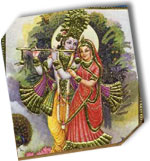
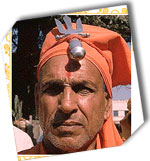
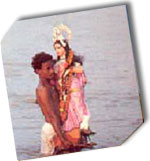

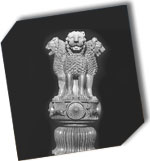
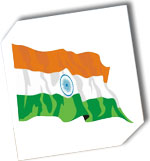

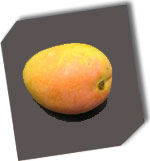

|
|
|